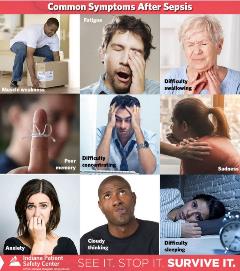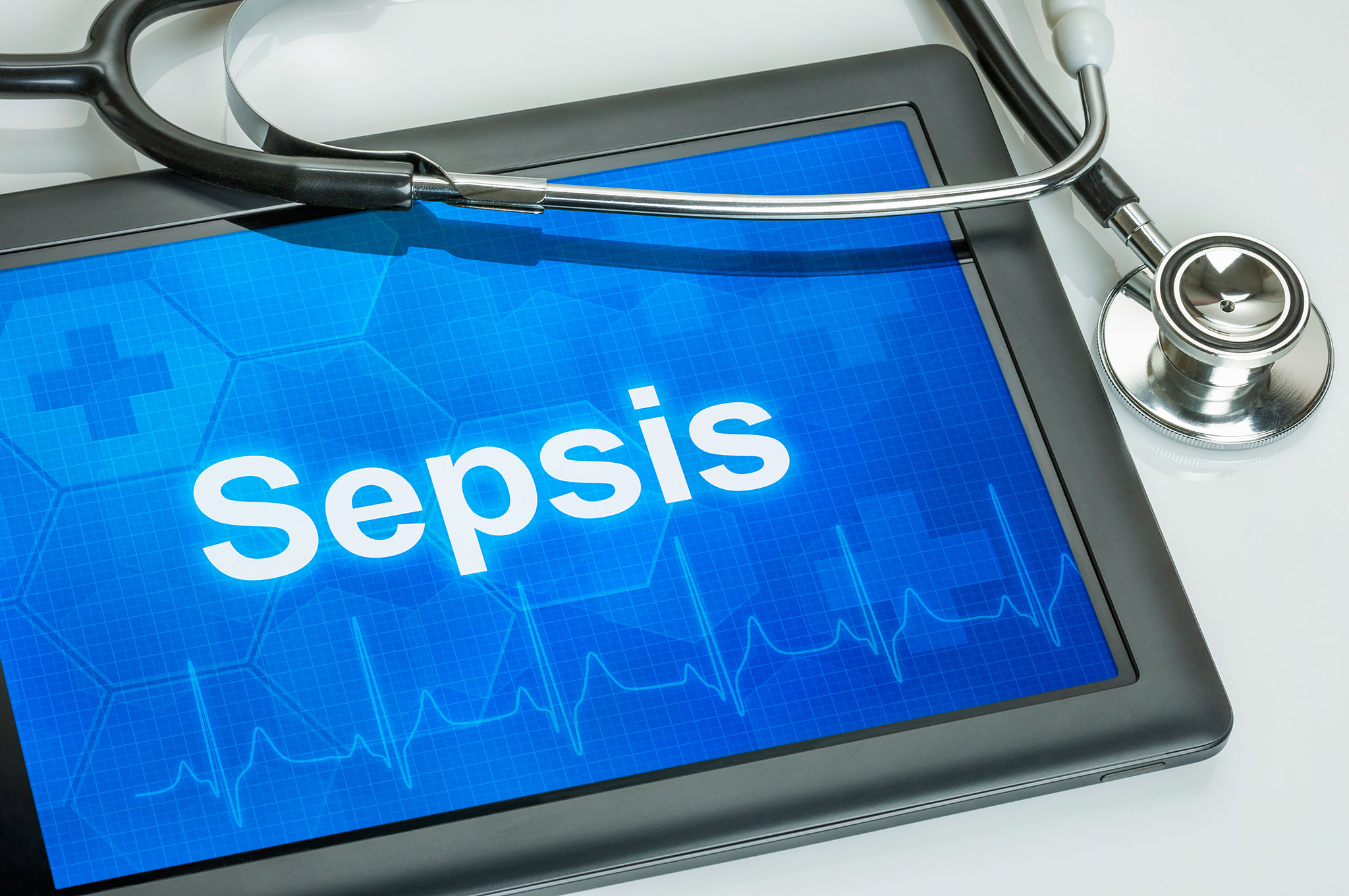Sepsis Frequently Asked Questions
According to the Global Sepsis Alliance, sepsis is the leading cause of death following an infection, but with early detection and proper treatment, deadly consequences can be diminished.
The following FAQs aim to demystify the often misunderstood and unrecognized deadly complication to infection.
What is sepsis?
Sepsis is the body’s overwhelming and potentially life-threatening response to an infection. It can lead to tissue damage, organ failure, and even death.
What causes sepsis?
Any type of infection, anywhere in the body, can cause sepsis. The infection could come from a bacterial, fungal or viral source. This can include seemingly minor infections.
Types of infections that are often linked with sepsis are:
- Lungs- pneumonia, or even the COVID-19 infection
- Kidney- for example, a urinary tract infection
- Skin- it could be from a new or worsening injury
- Abdomen/Gut- for example colitis, or diverticulitis
Who can get sepsis?
Sepsis can affect any person of any age, from any type of infection, no matter how minor. While sepsis can affect anyone, you may be at a higher risk if you:
- Are under age 1 or over age 65
- Have a weakened immune system or chronic illness (diabetes, cancer, kidney, liver disease, splenectomy, dialysis, etc.)
- Have a severe burn or wound
- Have an indwelling catheter or intravenous (IV)
- Recently had surgery or have been hospitalized
It’s About TIMETM is a national initiative, created by Sepsis Alliance, to raise awareness of sepsis and the urgent need to seek treatment when symptoms are recognized. Sepsis Alliance has created a video about timely treatment.
Early detection is the best hope to survive and limit disabilities when sepsis is present. There is no single sign or symptom of sepsis. Because sepsis stems from infection, symptoms can include common infection signs such as diarrhea, vomiting, and sore throat. Additionally, symptoms can include any of the following:
Temperature (higher or lower than normal)
Infection (may have signs and symptoms of an infection)
Mental Decline (confused, sleepy, difficult to rouse)
Extremely Ill (severe pain, discomfort, shortness of breath)
If you have an infection along with any of these symptoms, you should seek medical treatment immediately.
How is sepsis diagnosed?
Sepsis can be difficult to diagnose because it shares many signs and symptoms with other conditions. Health care providers look for signs of sepsis like increased heart and breathing rates and temperature. They also rely on lab tests that check for signs of infection that may not be visible to the naked eye. Being alert to the signs and symptoms of sepsis, and if sepsis is suspected, acting fast and seeking immediate medical attention is critical. According to the CDC, it’s important to get ahead of sepsis.
- Talk to your doctor or nurse about steps you can take to prevent infections.
Some steps include taking good care of chronic conditions and getting recommended vaccines. - Practice good hygiene, such as handwashing, and keeping cuts clean and covered until healed.
- Know the symptoms of sepsis.
- Act fast. Get medical care immediately if you suspect sepsis or have an infection
that’s not getting better or is getting worse.
How is sepsis treated?
Sepsis is a serious complication of infection that should be treated in a hospital. Health care providers typically administer antibiotics and work to treat the infection, keep vital organs healthy, and prevent a drop in blood pressure. In some cases, other types of treatment may be required, including oxygen and intravenous (IV) fluids, or assisted breathing with a machine or kidney dialysis. In severe cases, surgery may be required to remove tissue damaged by infection.
How can I prevent sepsis?
While there is no way to completely prevent the possibility of sepsis, there are many ways to reduce your risk including:
- Be vaccinated. Protect yourself against the flu, pneumonia, and other infections
that could lead to sepsis. Talk to your health care provider for more information. - Be thorough. Properly clean and treat scrapes and wounds and practice good
hygiene - i.e. hand washing, bathing regularly, and brushing teeth regularly. - Be vigilant. If you have an infection, look for signs like fever, chills, rapid
breathing and heart rate, confusion, and disorientation.
Are there any long-term effects of sepsis?
Many sepsis survivors recover completely, and their lives return to normal. However, some people may experience organ damage, tissue loss, or may require amputation of arms or legs. Additionally, according to the Sepsis Alliance, post-sepsis syndrome is a condition that affects up to 50 percent of sepsis survivors. They are left with physical and/or psychological long-term effects, such as:
- Muscle weakness
- Fatigue
- Difficulty swallowing
- Cloudy thinking
- Difficulty concentration
- Poor memory
- Difficulty sleeping
- Sadness
- Anxiety
If you suspect that you or a loved one has post-sepsis syndrome, talk to a health care provider about resources for emotional and psychological assistance.
For more information, visit SurviveSepsis.com
Source: Indiana Hospital Association


